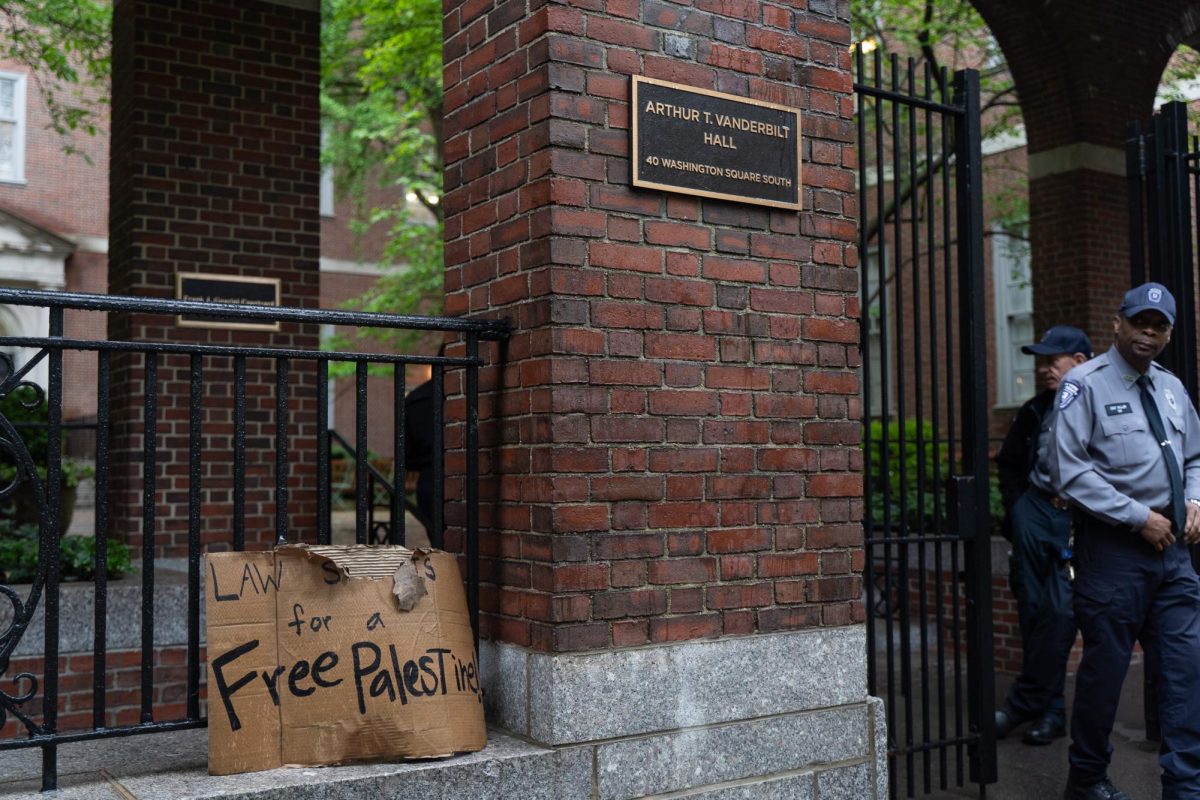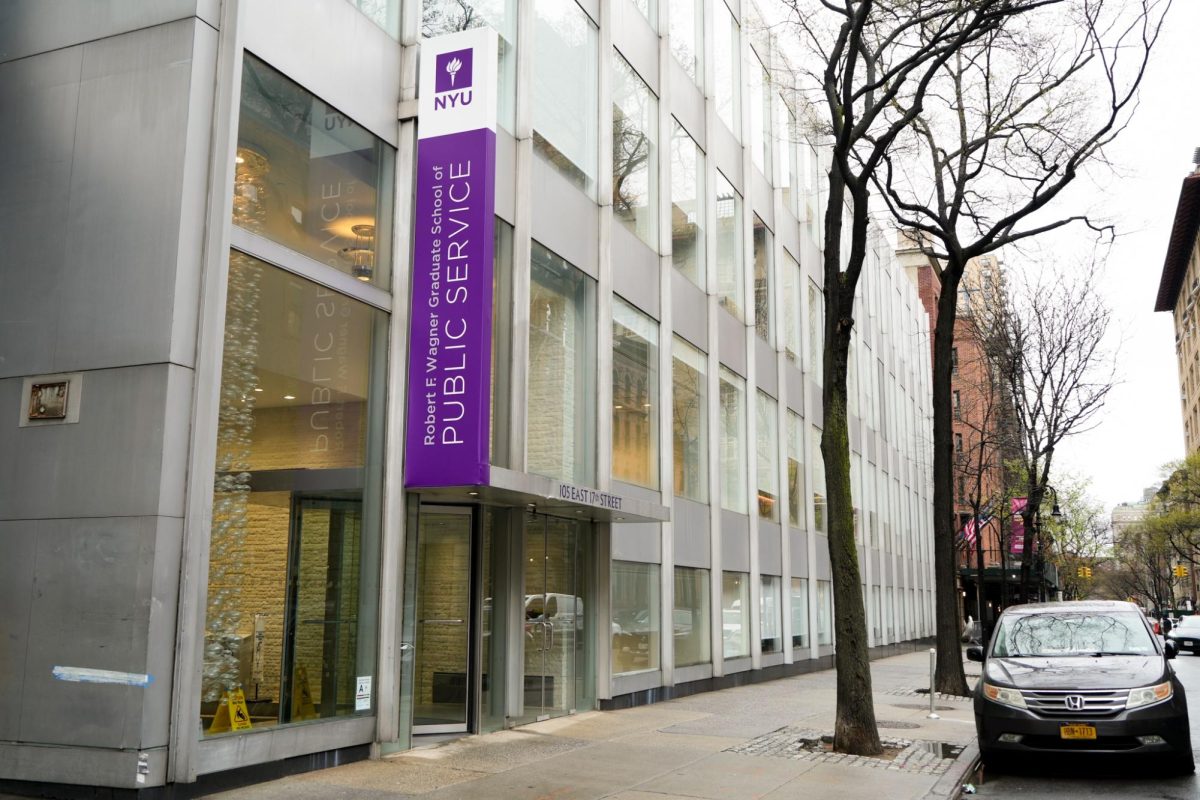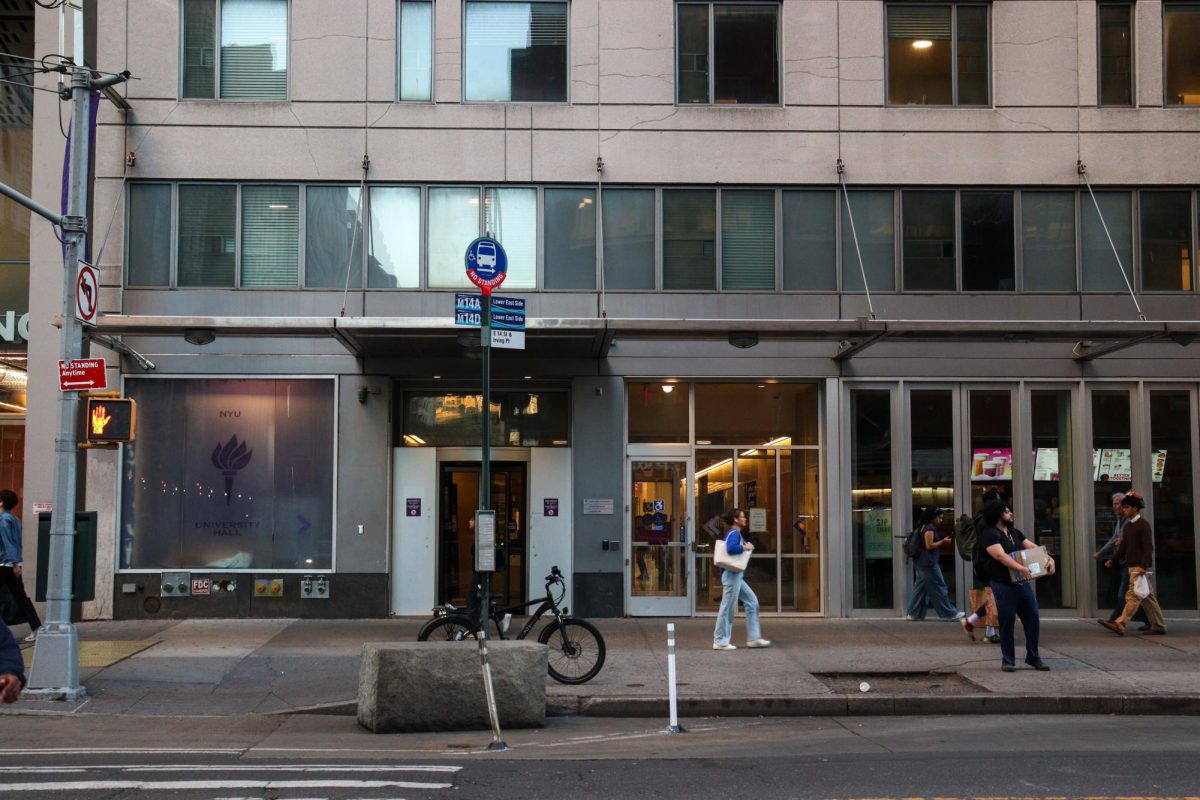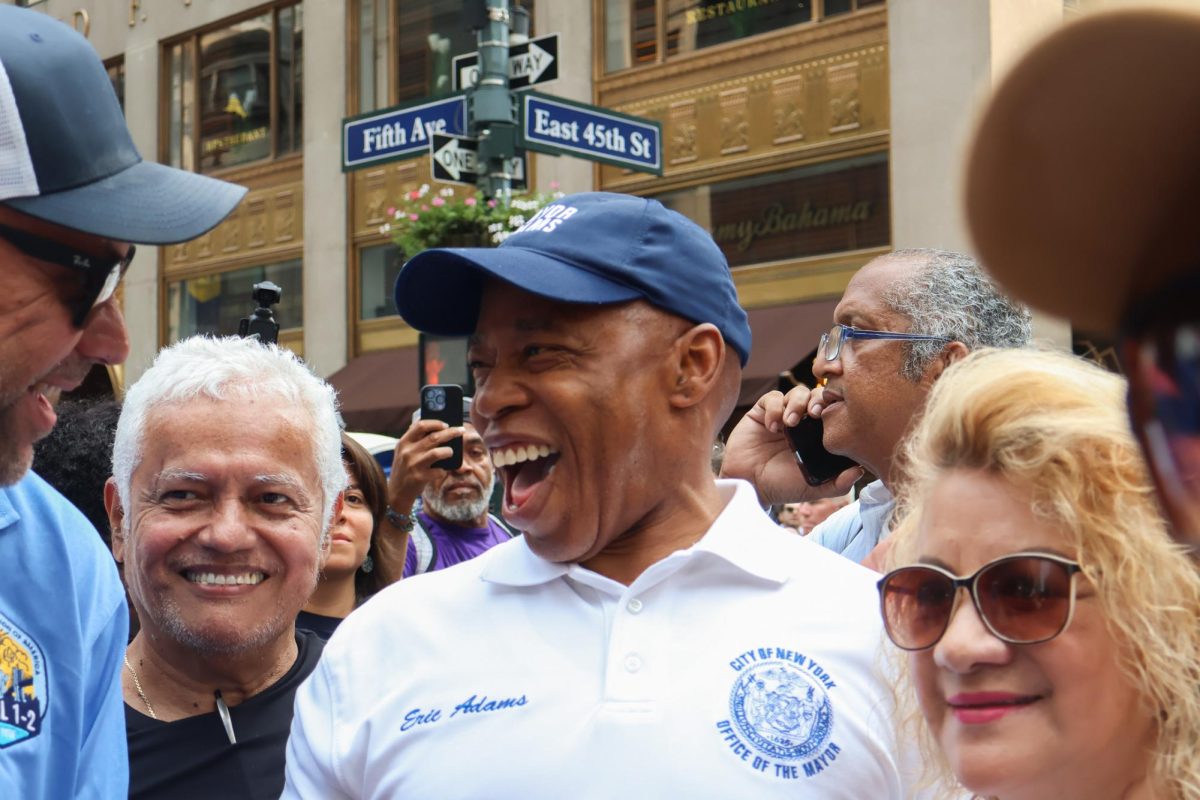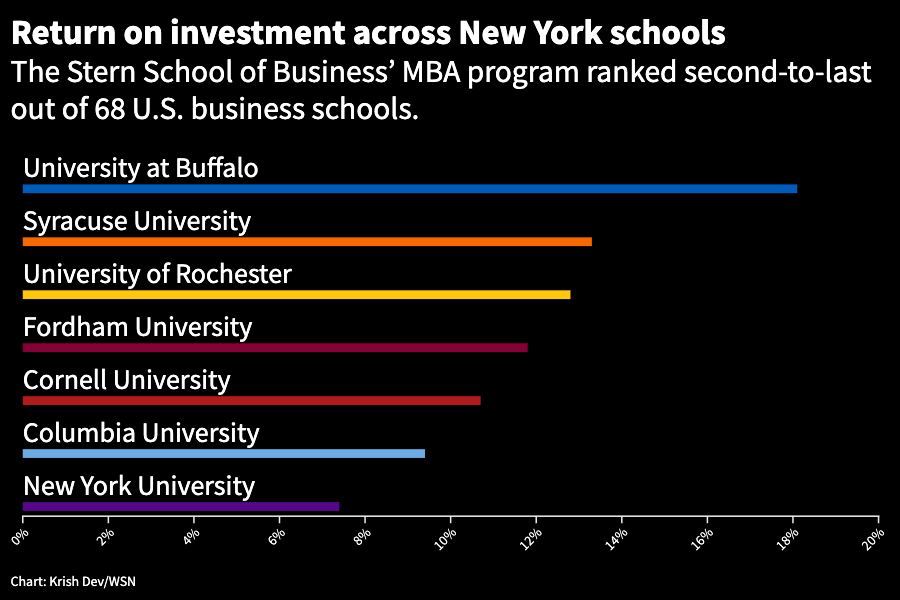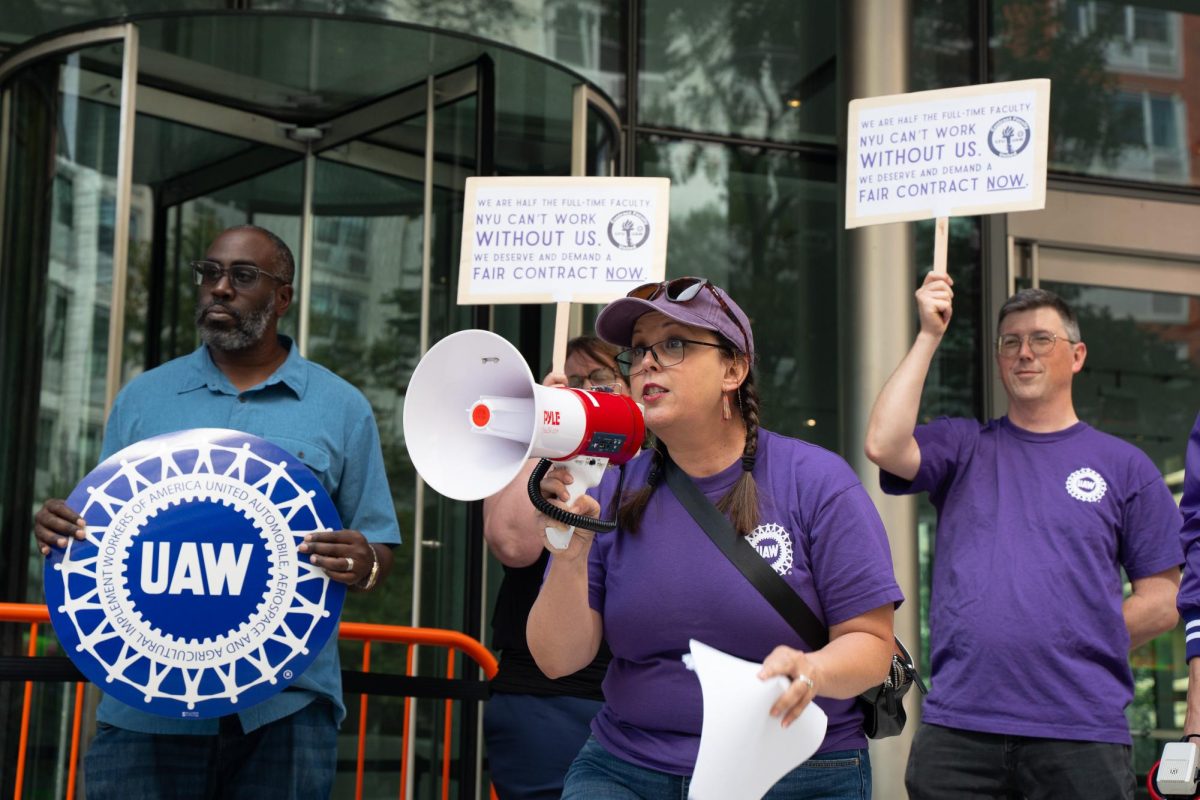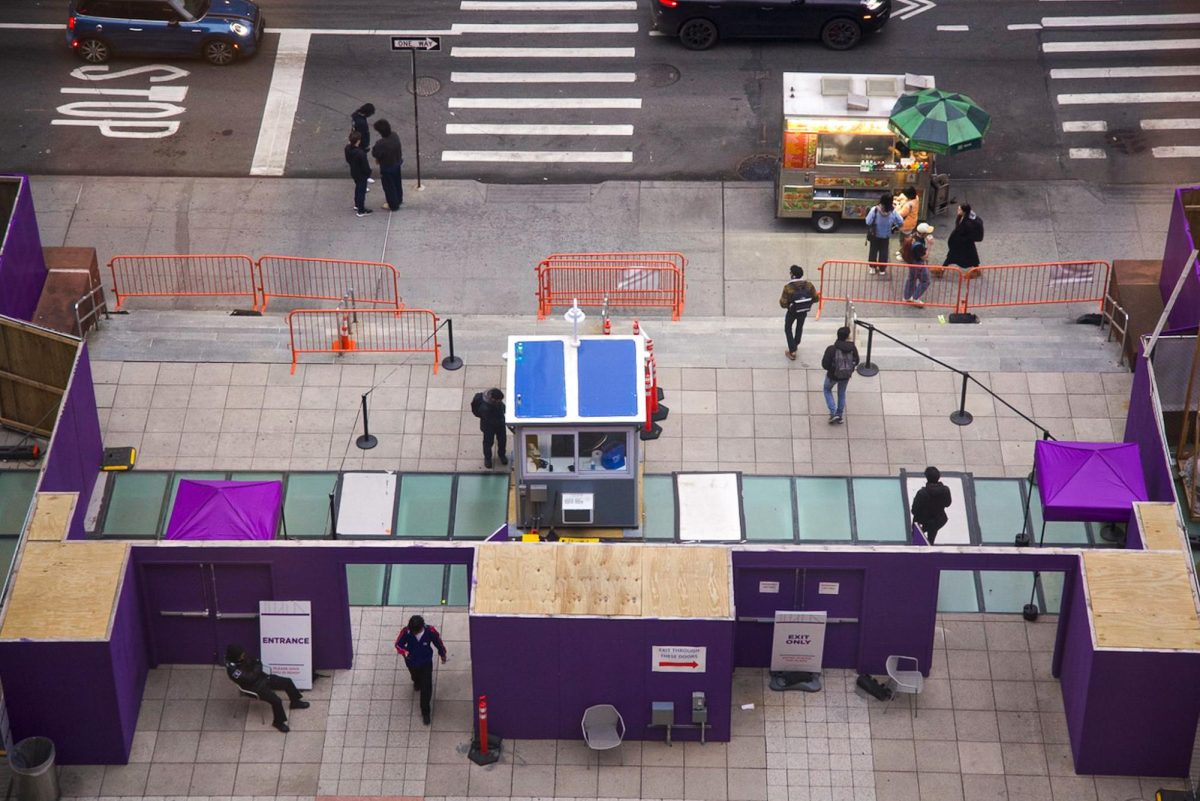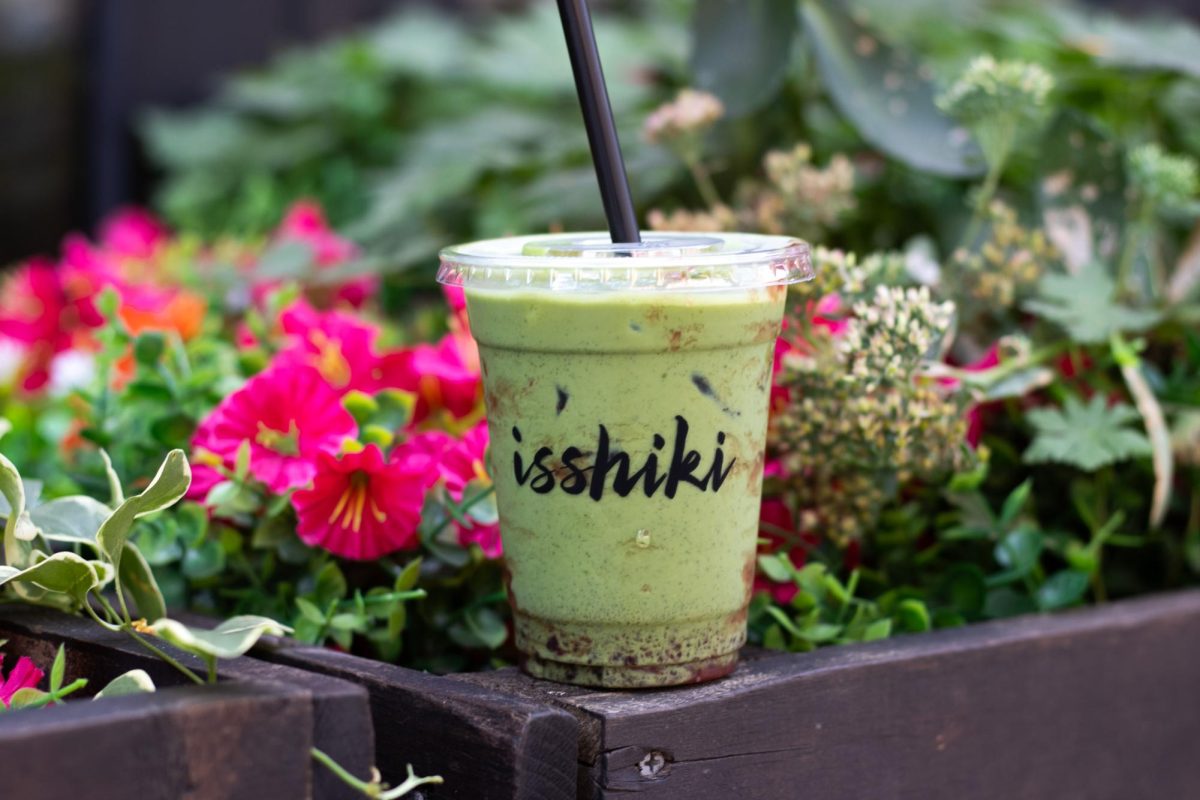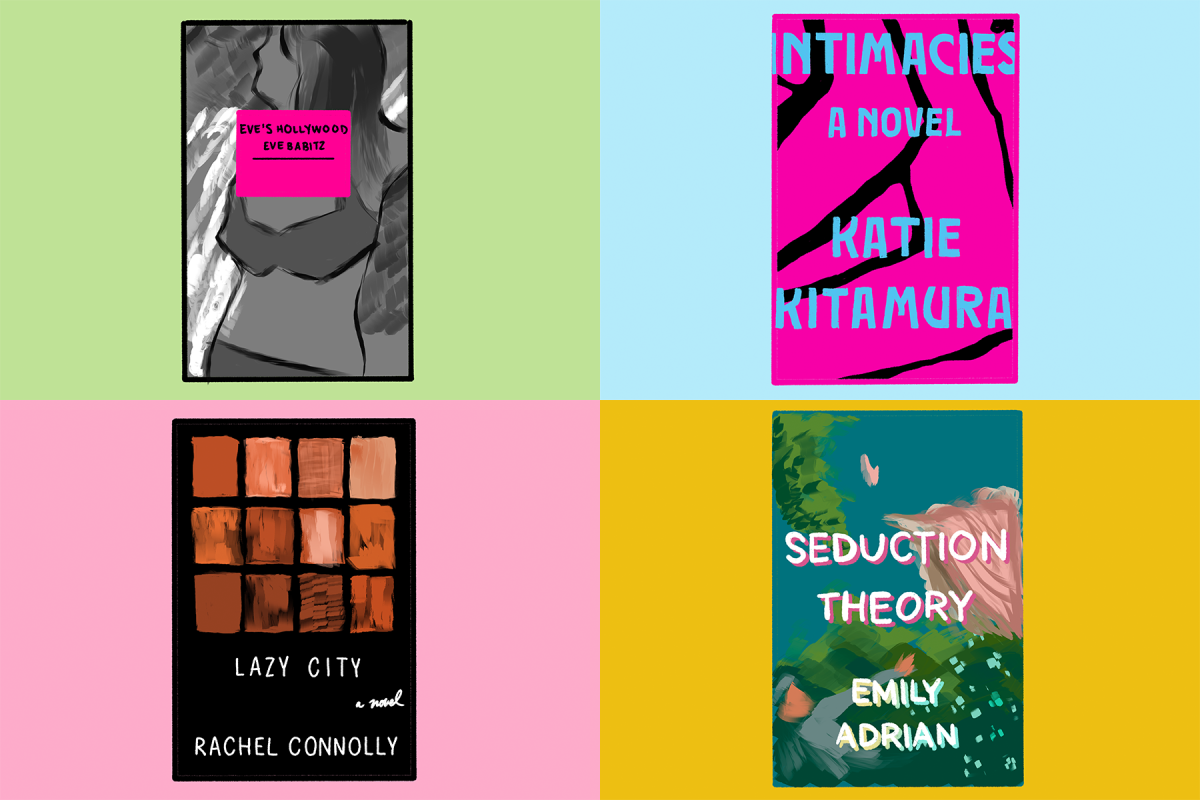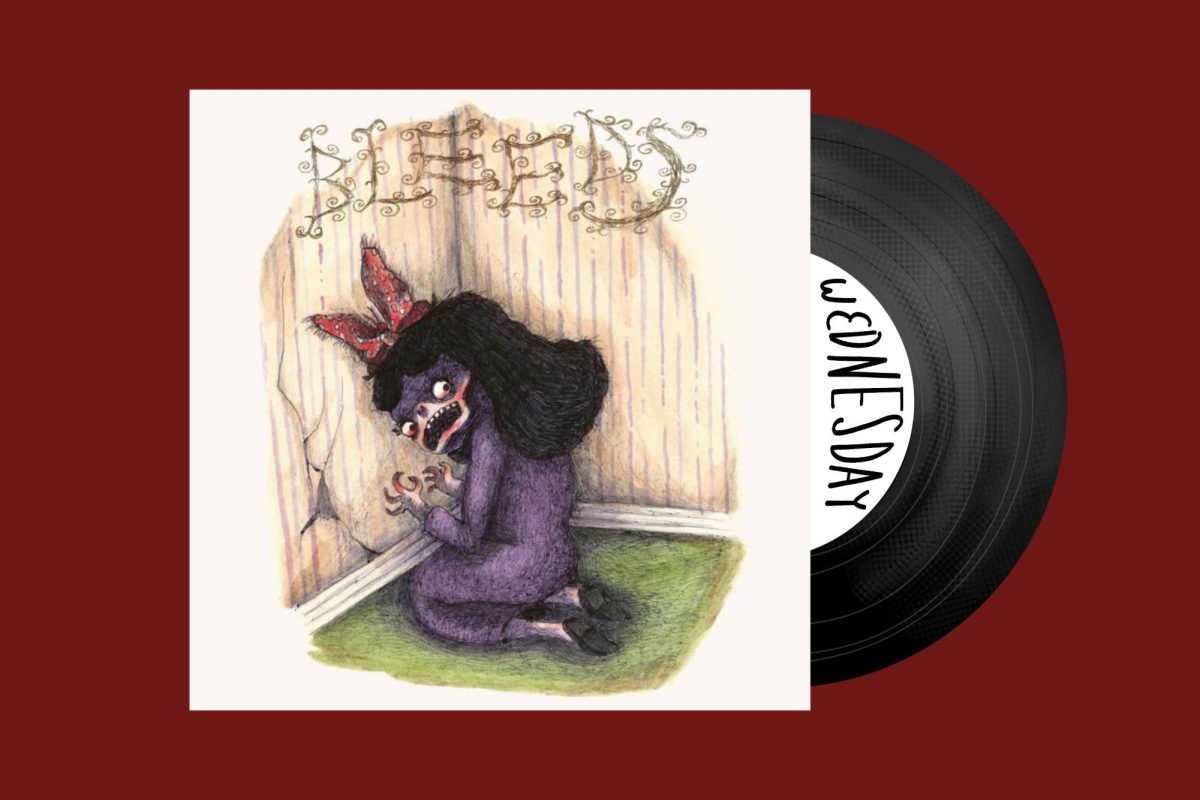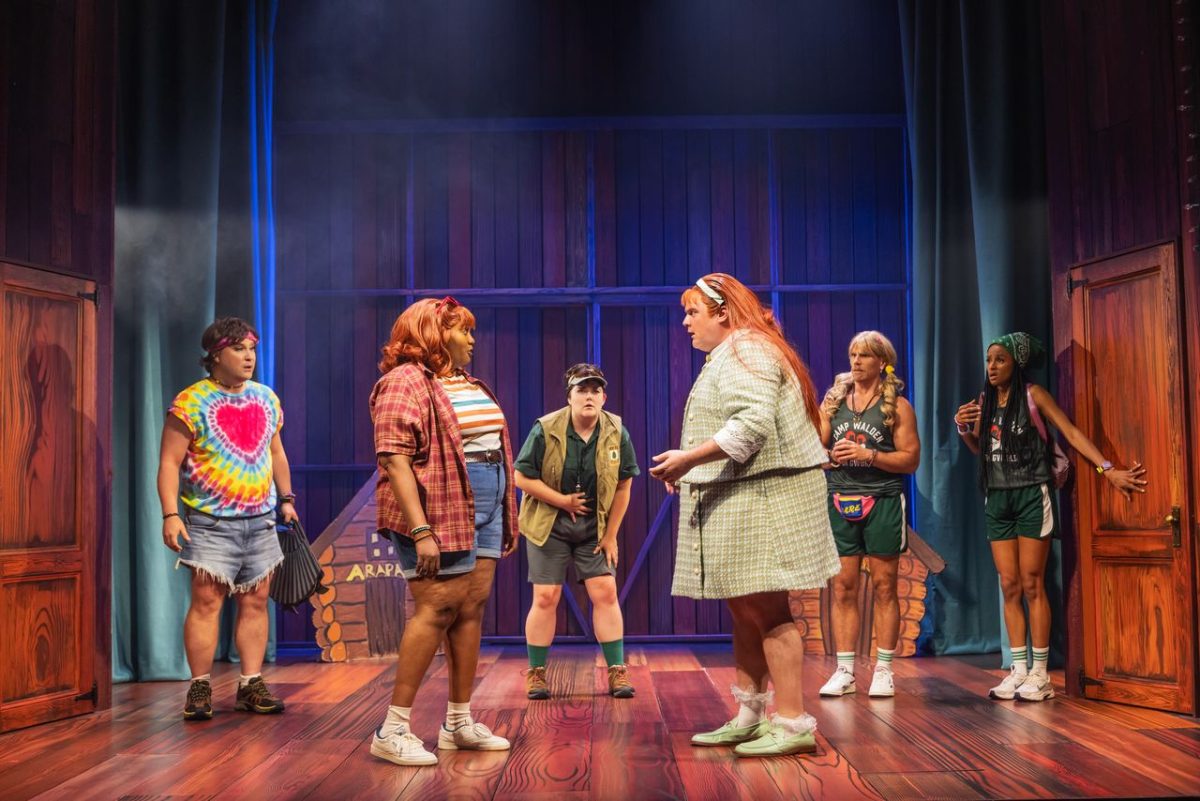Artists intersect heritage, queerness
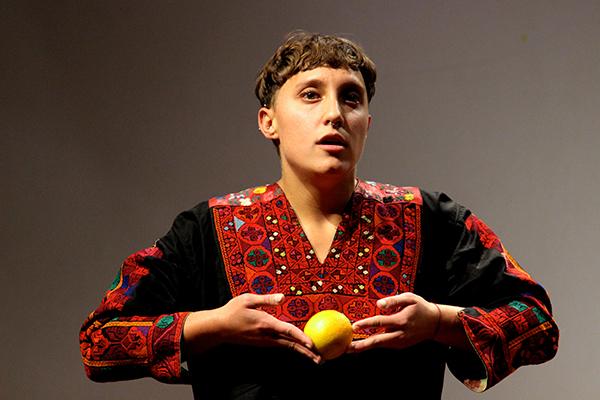
Mette Loulou Von Kohl performing for “Decolonially”.
October 19, 2015
October is NYU’s pride month, and in the aftermath of the ill-conceived Columbus Day, three queer performing artists graced the stage at “Decolonially Queer: An Evening of Performances.” They reflected on the intersections among gender, sexuality and indigenous experience.
As a collaboration between the Helix Queer Performance Network, Queer Union-NYU and the Hemispheric Institute of Performance and Politics, the event took place at the NYU Performance Studios.
Tommy Pico, a member of the Kumeyaay Indian community and a published author, commenced the night with a reading of “Nature Poem,” which was greeted with laughter by the audience.
“I wanted to read something that had a queer element to it and that addressed my heritage in which I was actively attempting to decolonize my artistic practice,” Pico said.
Since leaving the Viejas Indian reservation, Pico has been a trailblazer in the American Indian Community. He has grown his literary career and founded birdsong, an anti-racist and queer-positive collective featuring the works of other aspiring writers and artists.
“I would like to eventually have a program where every summer I bring like 15 Indian kids with artistic dreams like singers, writers, or artists and give them a six-week mentorship in the city,” Pico said. “I think that that would be a step in the direction of having more American Indian voices in the media.”
The next performer to light up the stage was Lady Dane Figueroa Edidi, a performance artist of African, Cuban and Indigenous American descent.
“Growing up, you have to read people who look like you,” Edidi said. “In order to be decolonized as a child, I read people who were about liberation.”
Edidi read two of her poems during her performance: “A Trans Woman Speaks of America” and “Poison Prison Knowledge.” Edidi describes her work as a resistance against white supremacy and institutionalized racism. A revolutionary in the transgender community as well as in the indigenous community, Edidi is following in her indigenous grandmother’s footsteps as a healer.
“I think my work is important because I am coming from a decolonized gaze,” Edidi said. “I’m black, I’m a revolutionary, I’m outspoken. I think my work is important because my work also centers around trans people.”
The third and final installation of the night was a performance by Mette Loulou von Kohl, a queer femme, born to a Lebanese-Palestinian mother and a Danish father. An homage to her family heritage, Von Kohl opened her act with an orange in her mouth while appearing in front of a screen displaying a video of Yafa, Tel Aviv.
“Both of my grandparents inspire my work because it is an act of communicating with them and communicating with my ancestry that has been denied,” Von Kohl said.
“This is not about nostalgia,” von Kohl said. “This is about memory as a weapon, as noise from the silenced. To remember is to resist.”
Von Kohl explained that the chief driving force of her work is to resist the erasure of the Palestinian people into absence.
“Embracing that absence is an act of resistance,” von Kohl said. “For me, it’s the drive to continue to resist the Israeli occupation.”
A version of this article appeared in the Monday, Oct. 19 print edition. Email Daniela Cobos at [email protected].

